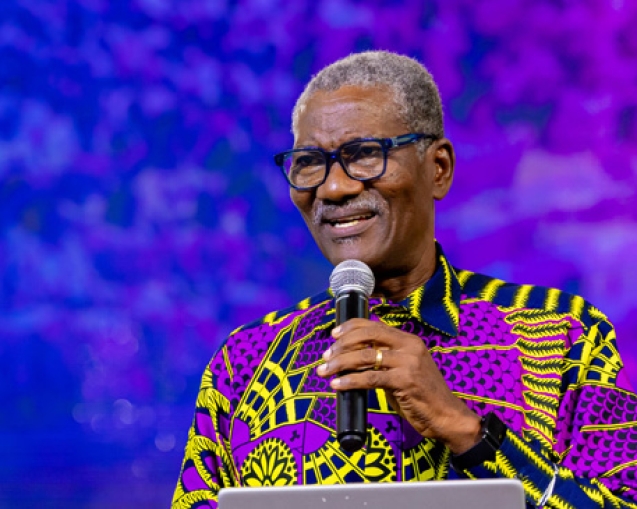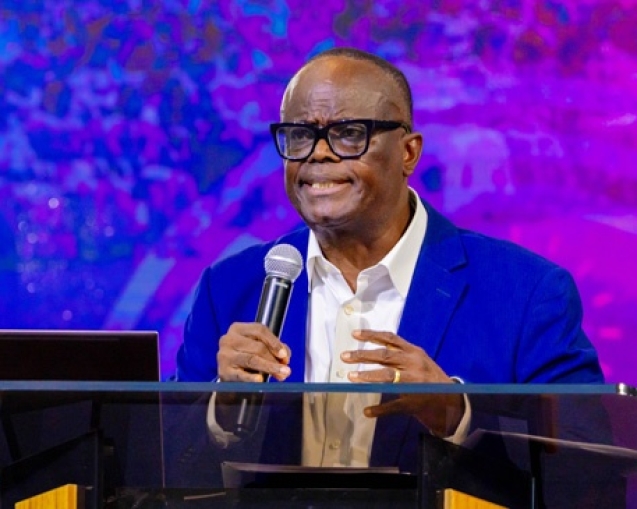Introduction
A historiography of Christian revivals since the Church’s observable presence in the world at the turn of the first century, demonstrates that revivals greatly informed and shaped the structure, conviction, and practice of the Church. Towards looking into the past to inform the future, this article is designed with this purview. It advances that an understanding of what revival is must not be limited to the experience that produces an inner fervency in the spirit. When the Lord of the Church enables movements within the community of Christians, substantial evidence reveals revivals that affect the general Church presence in the world; sharpens the identity and ministry of the Church. This may include issues that bother on administration, doctrines, and other structures that impact on the holistic mission of the Church. It seems that such renewals have an inherent characteristic of challenging existing missional awareness and methods to pave way for enhanced penetrance of the Church into various spaces in the world. Consequently, it is not surprising to discover interesting resistance to such renewals. Must this be the case? For these 68 years of its existence, The Church of Pentecost (CoP) has witnessed several revivals within its corporate mission. Many have been received with mixed feelings and interesting responses. In considering missional revivals in the general Church and using two examples in more recent history of the CoP for brief illustration, special attention would be paid to their context and reception. It is recommended that revivals of such nature be critically considered in the light of the experiences earned from history and appropriate reception given to them.
Apostolic Definition of Revival and its Context
Apostolic definition is used to indicate that the meaning of the word ‘revival’ would be derived entirely from scripture considering the context in which the word has been used in the Bible. An appreciation of what missional revival is would follow up. In the Bible, ‘revive’, the verb form of the noun ‘revival’ is used in a number of senses.
First, Genesis 45:27 accounts that “But when they told him everything Joseph had said to them, and when he saw the carts Joseph had sent to carry him back, the spirit of their father Jacob revived” (NIV). The backdrop to this revival of Jacob is to be found in the state of mourning Jacob went into due to the invented death of his son Joseph (Genesis 37:31-35). Joseph was actually sold to the Ishmaelites (Genesis 37:26-28). Jacob said he will not cease to mourn until he also dies. A famine that struck their land may have added to his grieve (Genesis 42ff; 43ff). Essentially, Jacob’s spirit was dampened due to the loss of his dear son. He became gloomy. ‘Revive’ is here used to mean enliven or invigorate. This sense is also carried in Psalm 138:7.
Second, ‘revive’ means to receive strength from a physical weakness due to hunger or thirst. This is carried in Judges 15:19 thus “. . . when he had drunk, his spirit came again, and he revived . . .” (KJV). This was when Samson became thirsty after he slew a number of Philistines in a fight. He thought he would actually die due to the thirst, but he had a drink by providence. He regained his strength consequently.
Third, from the reading of 1 Kings 17:22, ‘revive’ is used to mean to bring back from physical death. In the account, Prophet Elijah prayed to bring back a boy from death. The KJV, NLT, ESV, ASV, NKJV, NASB among other translations used ‘revive’ to mean to make alive. Other translations such as NIV, CSB, LSV, NET Bible used the word ‘lived’ or ‘lives.’ This sense of revival has been used in 2 Kings 13:21 and Romans 14:9 too.
Fourth, ‘revive’ is used as well to connote vitality. For instance, Hosea 14:7 reads, “They that dwell under his shadow shall return; they shall revive as the corn, and grow as the vine . . .” (KJV). Revival is a revitalization experience that produces growth in an erstwhile growth inert thing or person. When something is revived, it blossoms. Though the revival in this sense is liken to the growth of a corn which seem to make it a biological growth, the backdrop reveals that the revival of the nation of Israel would lead to the blossom of their socioeconomic and even their spiritual life.
Fifth, spiritual awakening is yet another sense of ‘revive’ used in the Bible. This meaning can be seen in Hosea 6:2. In the context to this, Israel sinned gravely against the Lord thus soiling its relationship with Him. As it seems, the people of Israel have backslidden. The people have lost touch with the Lord. The Lord pronounces judgement on Israel. The content of the judgement that is contained especially in chapter 5 of Hosea is one that would have dire implications on their well-being. The nation however took the decision to go back to the Lord. They said of the Lord in 6:2 that, “. . . he will revive us; on the third day he will restore us, that we may live in his presence” (NIV). This sense of spiritual awakening is conveyed in Psalm 85:6 and Isaiah 57:15 as well.
The sixth and last sense of use of ‘revive’ which I want to present is renewal. This is carried in Habakkuk 3:2 which says, “O LORD, I have heard the report of you, and your work, O LORD, do I fear. In the midst of the years revive it; in the midst of the years make it known; in wrath remember mercy” (ESV). This bears the meaning that once upon a time the Lord wrought some works among His people. His work has a certain peculiarity which has decline. The people thus yearned for a renewal. They crave for a new movement and a certain reformation. Revival, accordingly, carries the meaning of renewal or reformation.
From the first through the fifth definitions presented above, I want to suggest that in the Bible, the word ‘revival’ has a biopsychosocio-spiritual meaning. Being revived from a depressed state as seen in Jacob is psychological; revival from bodily weakness, physical death, and revival as vitality can be biological or social; and revival as spiritual awakening to rediscover one’s purpose in the Lord enabled this biopsychosocio-spiritual meaning. Let me insert here that revival of a community of Christians must intentionally take this holistic approach.
The sixth sense of revival, that is, renewal or reformation parallels the missional revival this essay is speaking for. Despite their innate tendency to shake established systems, when the Lord moves to cause missional revivals or missional renewals or reformation, the church that does not move with the Lord suffers great loss.
Missional Revival in the Church at a Glance
Arguably the movement that led to the emergence of Christianity is a revival which occurred among the Jews and spread out to other nations. In Christ, God was bringing into fulfilment the pictures we see under the Old Covenant. It has been in the divine plan of God to reveal himself in the person of our Lord Jesus Christ. It was foretold. The Jewish religious leaders were aware of this. However, they mistook the ways of God and were not willing to understand the spirit of the reformation brought by the death and resurrection of Jesus Christ and the preaching of His message by the early disciples. This revival was met with serious resistance. The remnants of this opposition is even seen today, where in Judaism stories of God that tells of the promised Messiah are still held as a departure from Jesus Christ who came in the fullness of time.
The Church on the move had to stand a number of threats to its missional revivals. These have called for a number of ecumenical councils and synods. While heresies were rightly confronted, renewals were bitterly opposed. It was against this backdrop that the famous Protestant Reformation took off in 1517 in the West. Spearheaded by Martin Luther, the Reformation sought to address the blatant errors within the Church. The magnitude of the situation that calls for this renewal may be ascertain from the number of years the Reformation was actively in the scene to engage the Church. This renowned renewal has even had forerunners such as Pierre Valdo and John Wycliffe among others. This earlier reformers pressed on until the movement breaks down due to opposition. Nevertheless, they have left marks that inspired the likes of Luther. There are many localized reformations that have advanced the mission of God in history.
Recounting the wonderful performances of these revivals pertaining to the missional fortunes of the Church, it is of great concern that even Christians who are ‘fervent in spirit’ would oppose these necessary renewals. In their quest to zealously guard things they have come to know about the Church, which things they have sadly cast in stones, they err gravely. Soon, it becomes obvious that many stand in the way of the Lord of the Church.
Concerning Missional Revivals within The Church of Pentecost
First, one of the most revolutionary missional revivals of the 21st century story of the CoP is The 2010 Communiqué of the CoP. This communiqué, a gazette of the General Council of the CoP on February 2, 2010 has, by dint of its impact, carved a niche for itself in the minds of many Ghanaians. The crux of the dispatch was a revision of the erstwhile religious dressing code and congregational tradition of the CoP. It was the practice of the women of the CoP to cover their heads as a reverend Christian religious act. As it were, the practice of head covering, which possesses Ghanaian religio-cultural implications, has been made sacred largely by a mistaken hermeneutics of 1 Corinthians 11:2-16. This poses a great challenge to the mission of the CoP which has made inroads into many other cultures and would have to rethink the practice to pave way for people of diverse cultures and social standing to come to Jesus. In the spirit of the mission of God, the General Council decided to suspend the practice, which, according to the council, “has no categorical biblical foundation as a requirement for salvation.” The response to the communique within and outside Ghana has been cosmic. The resistance which this missional renewal suffered has been enormous. Meanwhile, this is supposed to be a revival that promises to advance the mission of the Lord of the Church. When people passionately hold onto structures and methods, they would find themselves resisting revivals that come from God.
Second, the reform of the Prophetic is a major revival in very recent times of the CoP. Directive prophecy being a staunch belief and also a constitutional provision of the CoP, to many people within and outside the CoP, taking steps to bring a certain kind of decorum in the prophetic amounts to attempt to dilute the spirituality of the church. ‘Tampering’ with a prevalent pneumatic phenomenon of the CoP such as prophecy has become like kicking a nerve of the church. There have been several steps towards shaping the prophetic. Those who possess such gifts are taken through teachings from time to time. However, it was realized that much more needed to be done especially regarding directive prophecies. It was seen as a weakness in the practice of the prophetic within the CoP. Against this backdrop, Apostle Alfred Koduah of the CoP presented the paper, “The Role of Directive Prophecy in the Selection of Ecclesiastical Leadership: The Church of Pentecost Experience” at the 15th Extraordinary Council Meeting of the CoP. It is my position that the method of directive prophecy with its accompanying disorder, as was formerly practised in the CoP, was part of the questions that have been posed concerning the worrying manner in which prophetism is practised in African Pentecostalism, as captured in Prof. J. Kwabena Asamoah-Gyadu’s “‘The Promise is for You and Your Children’: Pentecostal Spirituality, Mission and Discipleship in Africa.” Following from the lecture of Apostle Koduah, suggestions have been proposed to renew the prophetic. As a group that has become a global Pentecostal church and hence a church that is very much looked up to by churches and para-church groups, I deem this a key revival within the CoP. However, within the grassroots, murmuring is on the go concerning this shift.
Identity Sympathetics
It is of utmost importance and indeed it should not be a thing of angst if the Church of God sees reformation. A reason for this is that unspeakable are the diverse facets that are intrinsic to the ontological nature of God. I think Paul, a first century scholar and apostle, was aware of this, thus, goes an important dictum of his, “Oh, the depth of the riches and wisdom and knowledge of God! How unsearchable are his judgments and inscrutable his ways!” (Romans 11:33, ESV). Why then should the Christian be overtaken with trepidation when revival comes? God has been on a mission in the world and the Church, and in fulfilling this mission, He allows His people to catch unique glimpses of His being from time to time. The task of the people of God is to discover the spirit of revivals when they come in order not to frustrate the move of God primarily out of fear that their perceived identity of the Church would be compromised. This underpins the many oppositions missional revivals suffered. Essentially, the Church of God would not lose its identity if it embraces missional revival.
The relevance of renewals is indicated for instance by the kind of verve new songs bring to a group of Christians. The CoP with its very obvious pneumatic phenomenon of receiving prophetic songs would be in a very good position to understand this. This must be the same with missional revivals. If the Church is able to catch the spirit behind reformations, it would receive new drive for greater impact.
Conclusion
This article posits that there is more to Christian revival than what is commonly known. It asserts that missional revival is sine qua non to advancing the mission of God. Meanwhile, sadly, missional revivals have suffered enormous hostility. To allay the anxiety people may have concerning missional revivals, it is important that in the spirit of Christian solidarity, a careful approach is used in advancing missional revivals. It is also imperative that the individual Christian opens up to the Spirit of God and not emotions. Time must be taken to prayerfully consider the Church’s role in the world at every strata of leadership. This is likely to birth consensus in event of a missional revival. The relevance of in-depth discussion of the essence of the needed revivals right from the central leadership to the periphery, and to the core of the grassroots of churches cannot be belabored. When revival comes, identity sympathetics must rethink their emotional attachment to phenotypic identities. These identities are not perpetual. The Christian must appreciate how God works in the world through the revivals within the Church. A church that is revived will not be overly conservative; it will not coil into its shells but rather spread its tentacles of mission to the ends of the earth. The local church can even take a cue from this understanding. Oxymoronic it may seem, but many are ready to sing the dirge of missional revival. It has almost become normative. Must this be the way to go? It should not be the case that the Church of God would crave for revival only to fight it when it finally comes. Missional revivals spring from the very inspiration of the Lord; the church that opens up to them will not retreat into oblivion but will shine with ever-increasing glory.
By Elder Dr. Ofotsu Ofoe


















